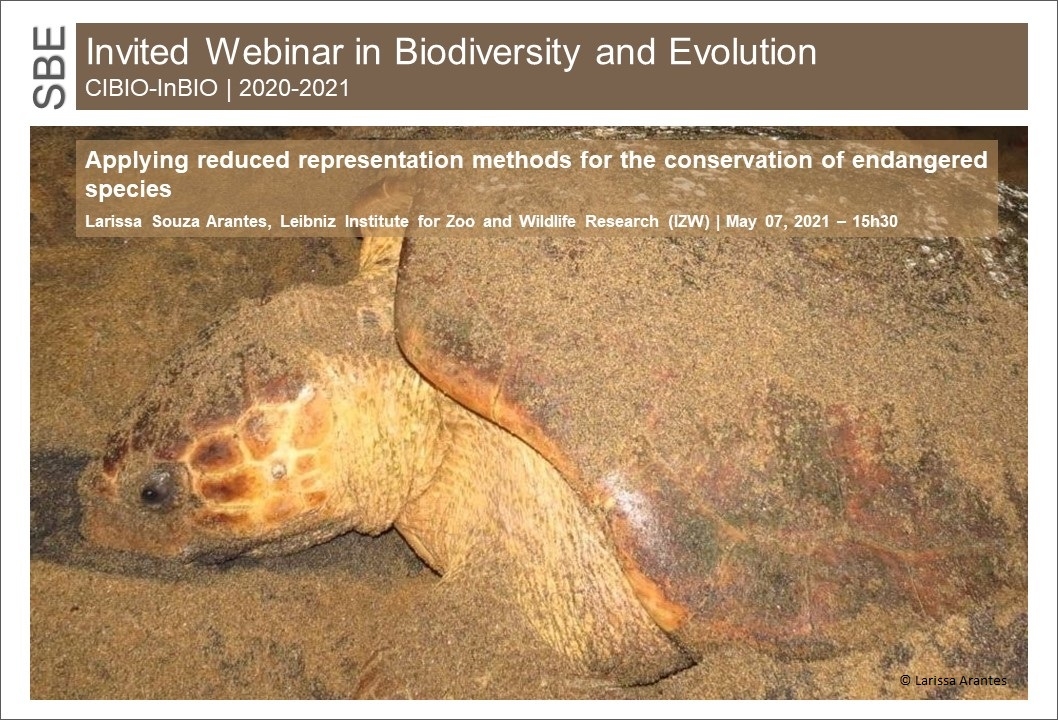Applying reduced representation methods for the conservation of endangered species
07 May 2021 - Larissa Souza Arantes, Leibniz Institute for Zoo and Wildlife Research (IZW) | 15h30

INVITED TALK - WEBINAR IN BIODIVERSITY AND EVOLUTION
Reduced-representation sequencing (RRS) approaches provide a cost-effective method for obtaining a large number of genome-wide loci across many individuals. These methods have proved to be a powerful tool to access genetic diversity to study ecology, behavior and evolutionary history of species. However, dealing with high throughput sequencing data can be challenging. Several studies have shown the impact of technical issues as well as the importance of carefully choosing parameters in bioinformatic pipelines on the downstream analyses. I will present a new strategy to achieve high-quality ddRAD-like reference catalogs for non-model species. Our approach allows to identify and filter out either biological or technical errors and paralogs leading to a reliable set of single copy reference loci to extract variation across populations or species. Finally, I will present different research projects from our group for which we are applying this method to investigate the hybridization process (between sea turtles species), population structure (of Antartic Toothfish), phylogeny (of Howler Monkeys), inbreeding level (in aquatic warblers), and relatedness (between Asian elephants).
Larissa is a biologist interested in applying genetic tools in species conservation studies. She has experience using Next Generation Sequencing methods, developing bioinformatics tools and performing genomic data analyses for biodiversity conservation. During her PhD, she investigated the phylogeography and the hybridization between sea turtles in Brazil. Currently, she is a postdoctoral researcher at the Leibniz Institute for Zoo and Wildlife Research, in Berlin, working on population genomics projects. She is also a postdoctoral researcher at the University of Turku, Finland, working on conservation genomics of Asian elephants from Myanmar.
[Host: Paulo Célio Alves, Conservation Genetics and Wildlife Management - CONGEN]